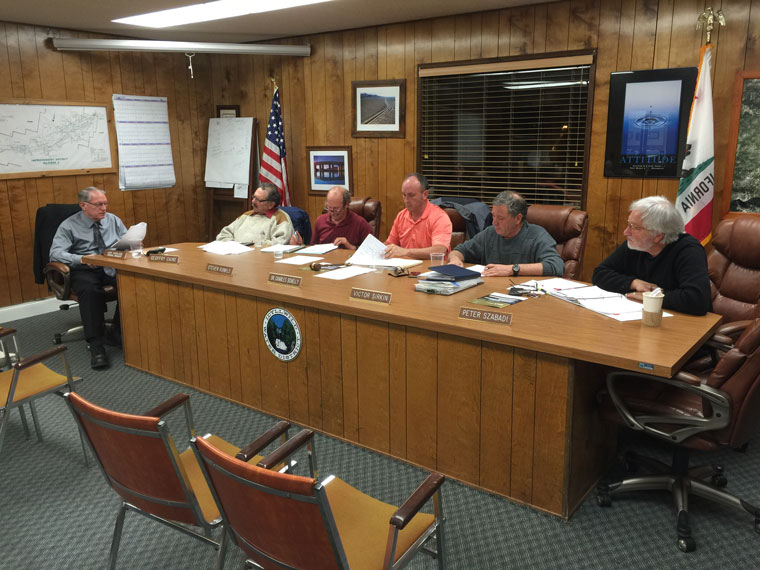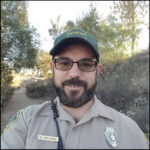
The recycled water project, long a dream of the Idyllwild Water District’s past boards, is being flushed down the drain. The current Board of Directors unanimously agreed to have staff begin negotiations with the state to end the project.
“At this juncture, I recommend to the board that it not move forward at this time,” General Manager Jack Hoagland said at the end of his presentation on the history and feasibility of the project. “Certainly now it is not financially feasible, and I don’t see a way to go forward.”
In the future, perhaps new technology and different costs might improve the project’s feasibility, Hoagland added. But the current plan does not support the “unique demographic, geographic and hydrologic conditions of the community.”
After reviewing the project’s plan, intent and local conditions, Hoagland described three main problems that limit its likelihood of success and impose excess costs currently.
Recycling local wastewater had two goals. The first was to provide water for irrigation in lieu of customers using potable water. The second was storing it in Foster Lake to supplement the groundwater for wells in that area.
However, the volume of water currently used for irrigation is not very much. Hoagland referred to a 2011 report that also questioned the amount of water needed for irrigation.
“The amount of water that was identified in several scenarios is not clearly supported by data,” Hoagland concluded.
Regarding the goal of using the water to replenish Dutch Flats wells, Hoagland also debunked that premise, calling it “… likely never credible…” According to Hoagland, water at Foster Lake percolates into the ground too fast.
“The state wants at least six months’ retention time,” he said. “There is no way to make that happen.”
In addition, the recycled water has a higher salt content, which would diminish the quality of Foster Lake water over time. To maintain the water quality, ultimately the district would need to build a desalting facility.
Finally, Hoagland explained that the low estimate of demand for recycled water to be used for irrigation would substantially increase costs for which water customers would ultimately have to pay.
“The recycled water would replace about 4 percent of the water demand for which water ratepayers would have to pay a 20+ percent increase in their rates,” he wrote in his report. “… for a minor improvement in water supply [that] would be difficult to justify to the water ratepayers.”
The cost of a new well is about $100,000, according to Hoagland. If it produced about 10 gallons per minute, that would meet or exceed the goal of the recycled water project at substantially less cost — even if one or two were dry wells.
In response to a question from Director Vic Sirkin, Hoagland also said the district’s cost will probably more than double to at least $2.25 million for the current estimate of less than $1 million.
The current directors expressed surprise that previous boards did not share Hoagland’s conclusions, especially since they seemed to have been readily available for years. Several directors wished that some former directors would step up and explain how they decided to go forward with the facility.
But the board unanimously approved Hoagland’s recommendation to pursue with state agencies the project’s termination.











You better hope we were wrong!
Time will tell! Hey porter insurance move
That’s eight poor insurance move !
Forget Siri Do it myself
That’s a poor insurance move.